order histories, retained contact details for faster checkout, review submissions, and special promotions.
Forgot password?
order histories, retained contact details for faster checkout, review submissions, and special promotions.
Location
Corporate Headquarters
Vector Laboratories, Inc.
6737 Mowry Ave
Newark, CA 94560
United States
Telephone Numbers
Customer Service: (800) 227-6666 / (650) 697-3600
Contact Us
Additional Contact Details
order histories, retained contact details for faster checkout, review submissions, and special promotions.
Forgot password?
order histories, retained contact details for faster checkout, review submissions, and special promotions.
UNG / Uracil DNA Glycosylase
uracil-DNA glycosylase
UNG / Uracil DNA Glycosylase is one of several uracil-DNA glycosylases. One important function of uracil-DNA glycosylases is to prevent mutagenesis by eliminating uracil from DNA molecules by cleaving the N-glycosylic bond and initiating the base-excision repair (BER) pathway. Uracil bases occur from cytosine deamination or misincorporation of dUMP residues. Alternative promoter usage and splicing of this gene leads to two different isoforms: the mitochondrial UNG1 and the nuclear UNG2. The UNG2 term was used as a previous symbol for the CCNO gene (GeneID 10309), which has been confused with this gene, in the literature and some databases.
| Gene Name: | uracil-DNA glycosylase |
| Synonyms: | UNG, DGU, HIGM4, HIGM5, Uracil-DNA glycosylase, UNG1, UNG2, UDG, UNG15 |
| Target Sequences: | NM_003362 NP_003353.1 P13051 |



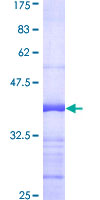
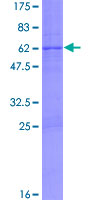
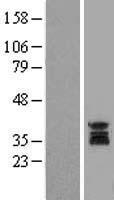
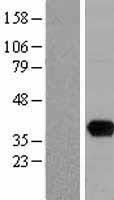


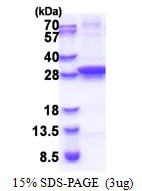
If you do not find the reagent or information you require, please contact Customer.Support@LSBio.com to inquire about additional products in development.









